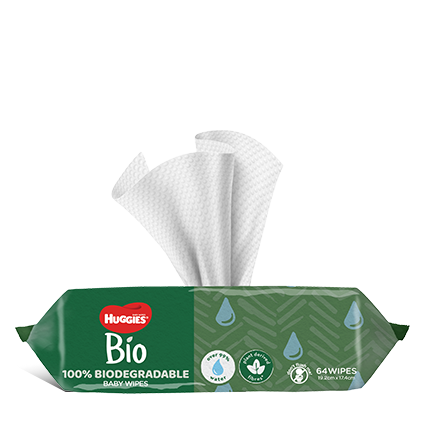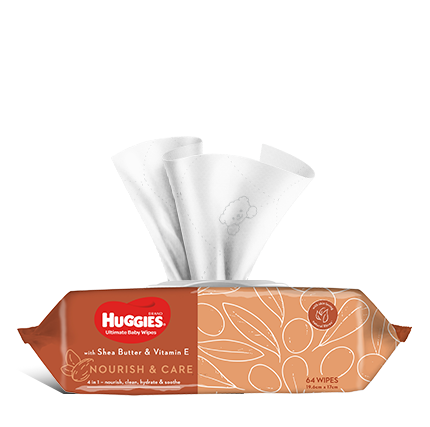After Breastfeeding
The length of time each mother chooses to breastfeed her own baby is entirely individual. Some have very strong views on breastfeeding for the longest possible time and others choose not to at all. Breastfeeding can be an emotive issue and there are all sorts of reasons why choices are made. What is important is that you feel you have access to as much information as you need, to make the right decision for you and your baby.
Becoming well informed and building confidence are processes which take time and it is easy to feel overwhelmed. Remember that you are not alone. A list of services which are designed to provide practical support is included at the end of this article.
Making the decision to stop breastfeeding is just one aspect. What you need to do after breastfeeding is another.
Reasons for Stopping Breastfeeding Can Include
- An insufficient milk supply for the baby to thrive. Although, in theory, all women should be able to breastfeed, some do not produce enough milk for their baby's needs.
- Personal choice. Some women have their own, personal reasons for not wanting to breastfeed which they aren t comfortable sharing.
- Recurrent mastitis or breast/nipple pain. Although these can be issues which often settle with time, for some women they are reason enough to stop breastfeeding. It is important to remember that during a bout of mastitis, continuing to breastfeed will help. Engorgement can exacerbate the symptoms and delay recovery.
- When there has been breast reduction surgery and the nipples and areola have been severed. When the milk producing glands and ducts have been severed there can be a permanent effect on the amount of milk which can be produced. The longer the period of time between surgery and lactation, the more success with breastfeeding.
- A return to work where continuing to breastfeed is not possible or a mother is not keen to express. Many women continue to offer a morning and/or evening breastfeed when they go back to work.
- When a mother needs to start taking medication which is incompatible with breastfeeding.
- If a mother is diagnosed with breast cancer and requires surgery, chemotherapy and/or radiation treatment.
Baby Care After Breastfeeding
Some babies are very attached to breastfeeding and go through a period of emotional and physical adjustment when they stop. Others don t seem bothered by it at all and feed happily from a bottle. If your baby is under 12 months of age, they will need to have formula milk. Any of the baby milk formulas which are available in shops or pharmacies have been assessed as being safe and suitable for infant feeding. You can also offer your baby expressed breast milk (EBM) if you have some. Ideally, give this to your baby first, before any formula so they get the health benefits of breast milk.
If you are undecided about which one to offer your baby, read the labels and speak with your health care professional. Although they cannot recommend one as being superior to the others, they will be able to give you general information on what is suitable.
Tips for going from breast to formula feeding
- Give your baby time and practice to get used to sucking on a bottle. This is a very different action to sucking on the breast. Some babies prefer one teat shape to another, so trial a few until you find one which suits.
- Give your baby lots of cuddles and affection as they transition from breast to bottle feeding. Hold your baby close and give them plenty of eye contact and soothing. Bottle feeding does not mean an end to the special bond you have with your baby.
- Alternate the arm you use to hold your baby during bottle feeds. This is done automatically when breastfeeding, but mothers tend hold the bottle with their dominant hand for each and every feed. There may be benefits for your baby's vision and brain growth by switching sides.
- Don t expect your baby to follow the same routine of feeds and sleeps when they stop breastfeeding. They may want to feed more or less often, accept smaller or larger feeds and even change their pattern of settling. Remember, there is usually a period of adjustment when changes are made. Be patient, calm and nurturing while your baby gets used to their new way of feeding.
- Your baby's bowel motions will change. Breastfed babies tend to have yellow, soft motions though bottle fed babies poos are very different. The consistency of their poos will be firmer, smellier, be a different colour and they may even become constipated. Make sure you are preparing the formula exactly as recommended on the tin.
- You may want to offer your baby expressed breast milk if you are still lactating; this can be combined with formula. Any amount of breast milk is beneficial so avoid thinking that a few millilitres is not worth offering, it is.
Weaning your baby from breastfeeding
- The best way to wean off breastfeeding is slowly. If this is an option, then phase out a feed every few days or so. Doing this will allow your body to adjust to not making milk and your hormone levels to stabilise less abruptly.
- Expressing your breasts for comfort, rather than emptying them can be useful. Remember that the milk you express out, your breasts will make again. You could try hand expressing or using a pump.
- Watch out for any signs or symptoms of mastitis. Redness, swelling, engorgement, lumps or red streaking can all indicate an infection of the breast tissue. Similarly, feeling flu-like symptoms and/or having an elevated temperature can also indicate mastitis. Go to your GP immediately if you are concerned.
- Wear a firm, well-fitting and supportive bra. You may need to adjust the straps every day or so to support your breasts. Make the time to have a correct fitting for new bras when you have stopped breastfeeding altogether. Breast shape, size and texture changes after a period of lactation.
- Give yourself some time to grieve. Stopping breastfeeding, for whatever reason, can bring a sense of sadness. Breastfeeding, for many women, is closely connected to their sense of femininity and motherhood so time, talking and reflection are all useful in working through this process.
How to dry up breast milk
Once a baby stops breastfeeding, the mother stops producing breast milk. Every woman is an individual and there is no one consistent period of time when her body will stop lactating. Some women go through a temporary period of breast engorgement when they stop breastfeeding, others don t experience any fullness or discomfort.
If you are feeling engorged and uncomfortable, you may want to express a small amount of milk for comfort. This expressed breast milk (EBM) can be fed to your baby in a bottle or feeding cup, even their solid food. Remember, your breasts will continue to produce milk for as long as you're breastfeeding or expressing.
Medication is no longer prescribed for mothers who stop breastfeeding or to dry-up their milk. Speak with a pharmacist about medication you can take to help manage any pain or discomfort.
Time, comfort measures as well as gentle expression if needed, all help to manage the transition between breastfeeding and stopping altogether.
Feelings
Often, the best emotional support comes from other women who have gone through the same experience. Just talking about how you feel can help. Speak too with your partner, your health care professional, the child health line in your state and your GP
If you are feeling overwhelmed with sadness, cry easily or become preoccupied by your baby's feeding, it is important that you speak with your health care professional. A history of having mental health issues can place mothers at a greater risk of depression and adjustment disorders.
After you have stopped breastfeeding
- You may still have milk in your breasts for some months after you have stopped.
- You may feel a let-down sensation in your breasts when your baby cries, between their bottle feeds or when you hear another baby crying.
- You may need to wear breast pads in your bra for a few weeks until your breasts adjust to not lactating. Leakages are common.
- You will need to review your contraception. Although breastfeeding is not protective against conception, it does have an effect on ovulation. If you have been feeding continuously through the day and night, then your hormone levels may have been playing a more protective role.
- Your baby may snuggle up close to your breasts and look to be breastfed for a few weeks after you have stopped breastfeeding. Toddlers especially, can become clingier and more upset when they want a breastfeed. Distraction, keeping them busy and offering them alternative drinks such as cow's milk or water in a cup will help.
- Wear a firm fitting top which makes it difficult to access your breasts. Mothers who have breastfed for a long period of time can be very used to just pulling up their shirt and feeding. This can become a strongly inbuilt, often subconscious behaviour.
Planning for the Future
The reasons why mothers stop breastfeeding one baby do not necessarily occur with subsequent children. Don t assume you cannot breastfeed future babies if you have had problems before. Each baby is different, their suck unique and their nutritional needs individual. There are no specific recommendations between pregnancies which help to ensure that future breastfeeding experiences will be improved.
Support Services After Breastfeeding
- Your child health nurse at the local child health centre.
- Your General Practitioner.
- Lactation Consultants.
- The child health contact centre and help-line in your state. Check the numbers which are included in your Personal Health Record Book for agencies available in your home state.
Edited and reviewed by Jane Barry, Midwife and Child Health Nurse July 2021.


Last Published* May, 2024
*Please note that the published date may not be the same as the date that the content was created and that information above may have changed since.




















